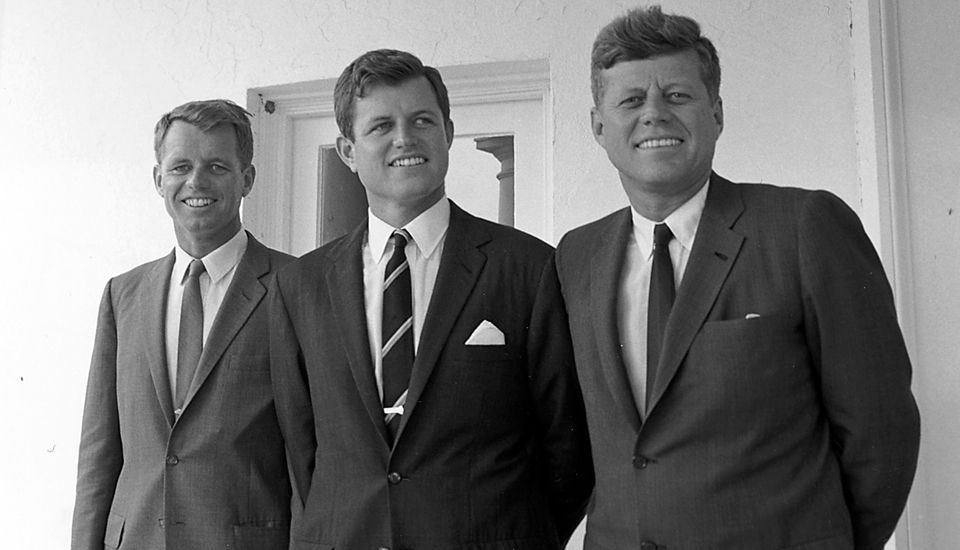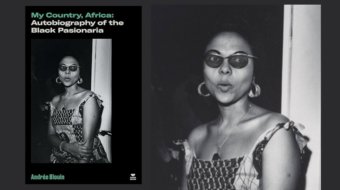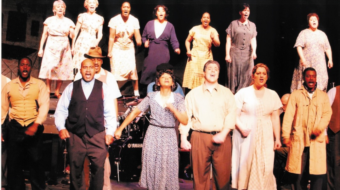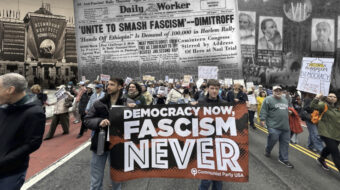
Fifty years ago, at 12:16 am on Wednesday, June 5, 1968, just hours after the polls closed in the California presidential primary election, New York Senator Robert F. Kennedy, younger brother of the assassinated President John F. Kennedy, was himself shot in Los Angeles by an assassin in the Ambassador Hotel’s Embassy Room ballroom kitchen.
In the election, Kennedy won 46 percent of the vote and Sen. Eugene McCarthy, the anti-war candidate embraced by youth, 42 percent. At approximately 12:10 am on June 5, he addressed his campaign supporters, claiming victory. He was naturally in a good mood, but also spoke of healing the country’s divisions, “whether it’s between blacks and whites, between the poor and the more affluent, or between age groups, or over the war in Vietnam.” He ended his speech stating, “My thanks to all of you; and now it’s on to Chicago, and let’s win there!”
From the podium RFK was to head elsewhere in the hotel to meet with supporters and the press. The route led through the ballroom kitchen. The affable candidate shook hands with busboy Juan Romero as star athletes Rafer Johnson and Rosey Grier, along with former FBI agent William Barry, stood near Kennedy. Suddenly, Palestinian-born Sirhan Sirhan approached with a .22 revolver hidden inside a rolled-up campaign poster and fired several shots at close range, hitting Kennedy and five bystanders. The men surrounding Kennedy grabbed Sirhan and disarmed him. Kennedy fell and as he lay wounded, Romero cradled the senator’s head and placed a rosary in his hand.
RFK’s wife Ethel, who was three months pregnant, knelt beside him, and he seemed to recognize her. After several minutes, medical attendants arrived and lifted him onto a stretcher, prompting him to whisper, “Don’t lift me.” Those were his last words before he lost consciousness. He was transferred several blocks to Good Samaritan Hospital for surgical treatment lasting three hours and 40 minutes.
Kennedy had been shot three times. One bullet, fired from about one inch away, entered behind his right ear, dispersing fragments throughout his brain. The other two entered at the rear of his right armpit; one exited from his chest and the other lodged in the back of his neck. Despite extensive efforts to save his life, Kennedy was pronounced dead at 1:44 am on June 6, nearly 26 hours after the shooting. Kennedy spokesman Frank Mankiewicz made the official announcement to the press.
After RFK’s assassination, Congress altered the Secret Service’s mandate to include protection for presidential candidates. The remaining candidates were immediately protected under an executive order issued by Lyndon Johnson, who a few months before had declared he was not running for re-election. Before the convention, McCarthy dropped out of the race, overpowered by Vice President Hubert H. Humphrey’s support within the party.
Historians disagree as to what chances RFK would have had at the Democratic convention in Chicago. He was running behind Humphrey in delegate support, but following his victory in the California primary he might have surged ahead to secure the nomination. Famously disrupted by police violence, the convention concluded with Humphrey’s anointment, to the disappointment of millions of activists against the Vietnam War, many of whom could not bring themselves to vote for him. Humphrey lost the November election to Republican Richard Nixon in the popular vote by 43.4 percent to 42.7 percent. In the electoral vote Nixon’s victory was more decisive: 301-191. That was the year Nixon employed his “Southern strategy,” pulling away traditional solid Democratic South votes over issues of racism and nationalism, a strategy that has served the GOP ever since.
After Johnson’s refusal to run again, and after the murder of Martin Luther King Jr. in April, just two months before, Robert F. Kennedy seemed like the only man in politics capable of leading the American people toward any degree of unity. He was well loved in minority communities for his passion for civil rights, perhaps the one man who could carry forward the ideals of the Great Society. In RFK, America found hope.
RFK’s funeral took place at St. Patrick’s Cathedral in New York. Ted Kennedy said, “My brother need not be idealized, or enlarged in death beyond what he was in life, to be remembered simply as a good and decent man, who saw wrong and tried to right it, saw suffering and tried to heal it, saw war and tried to stop it.”
A funeral train took his body down the east coast to Washington’s Union Station. A hearse bore him to Arlington National Cemetery for burial nearby his brother John. The Harvard University Band played “America the Beautiful.”
Kennedy’s assassination struck a heavy blow to the optimism for a brighter future that his campaign inspired. Juan Romero, the Ambassador busboy who cradled RFK’s head in his hands, later said, “It made me realize that no matter how much hope you have it can be taken away in a second.”
“We are the first generation that learned from experience, in our innocent twenties, that things were not really getting better, that we shall not overcome,” wrote Jack Newfield, a reporter who had been traveling with the campaign, in a memoir on Kennedy. “We felt, by the time we reached thirty, that we had already glimpsed the most compassionate leaders our nation could produce, and they had all been assassinated. And from this time forward, things would get worse: our best political leaders were part of memory now, not hope.”
The war that Nixon inherited from Johnson would continue all through Nixon’s first term and into his second, ending only just before May Day 1975, seven long years after RFK’s death.
Sirhan confessed to the crime at his trial and received a death sentence on March 3, 1969. However, since the California State Supreme Court invalidated all death penalty sentences in 1972, he has spent the rest of his life in prison. His diaries revealed that he believed Kennedy was “instrumental” in the oppression of Palestinians.
Sources: This Day in History, Wikipedia.










